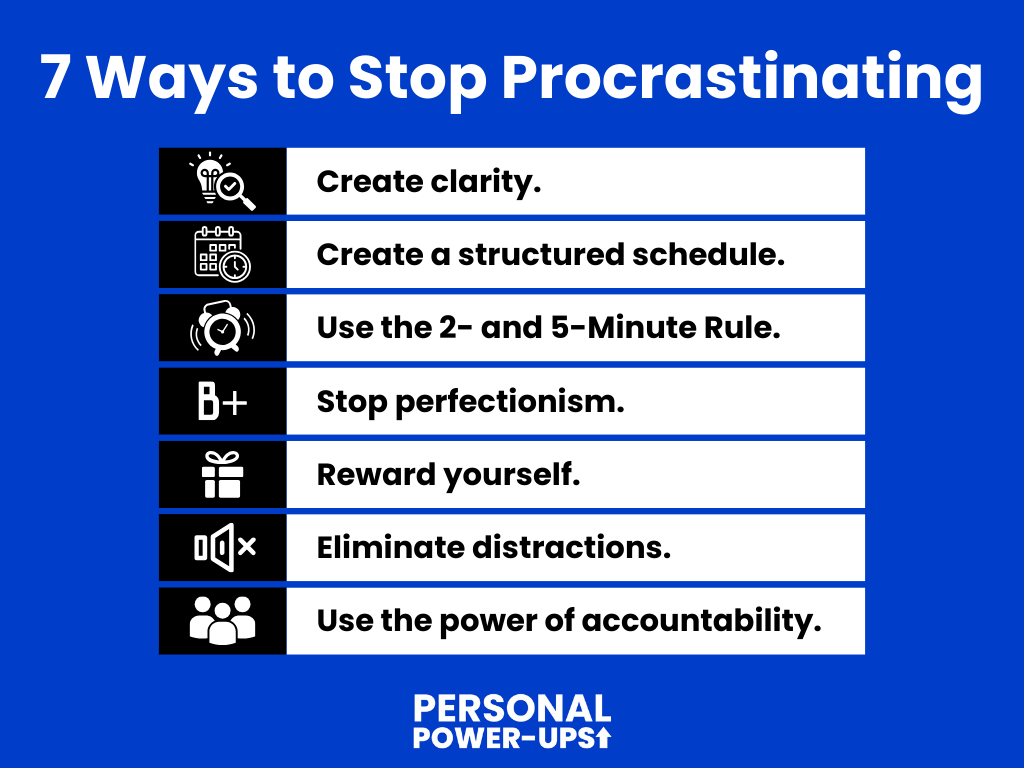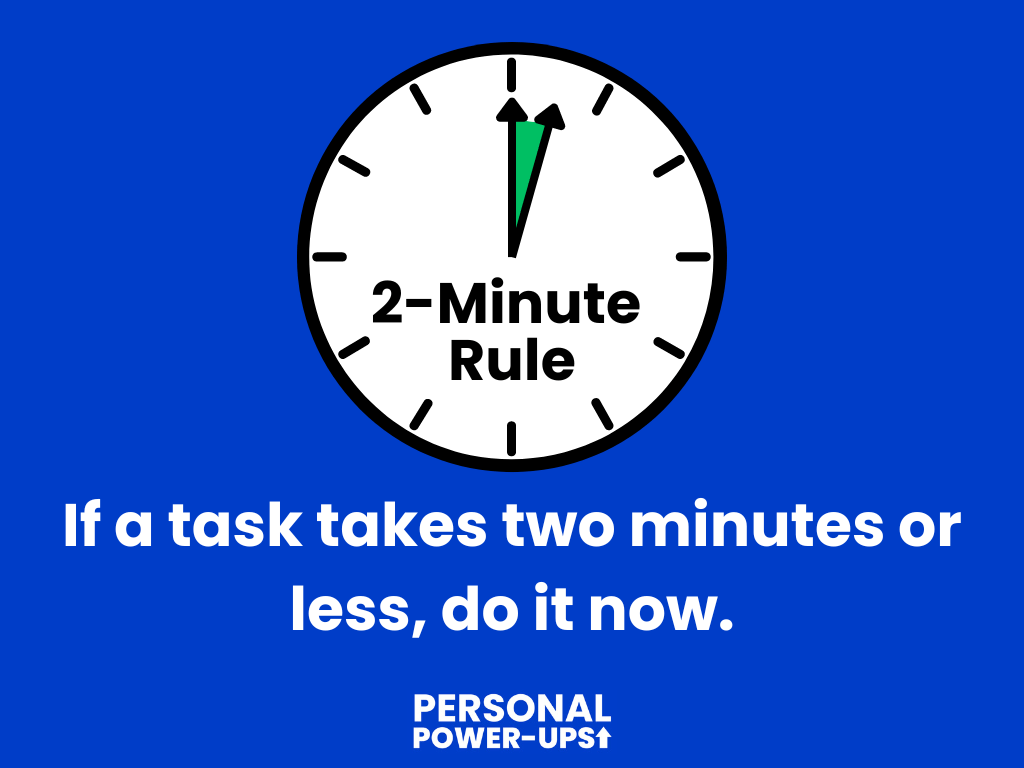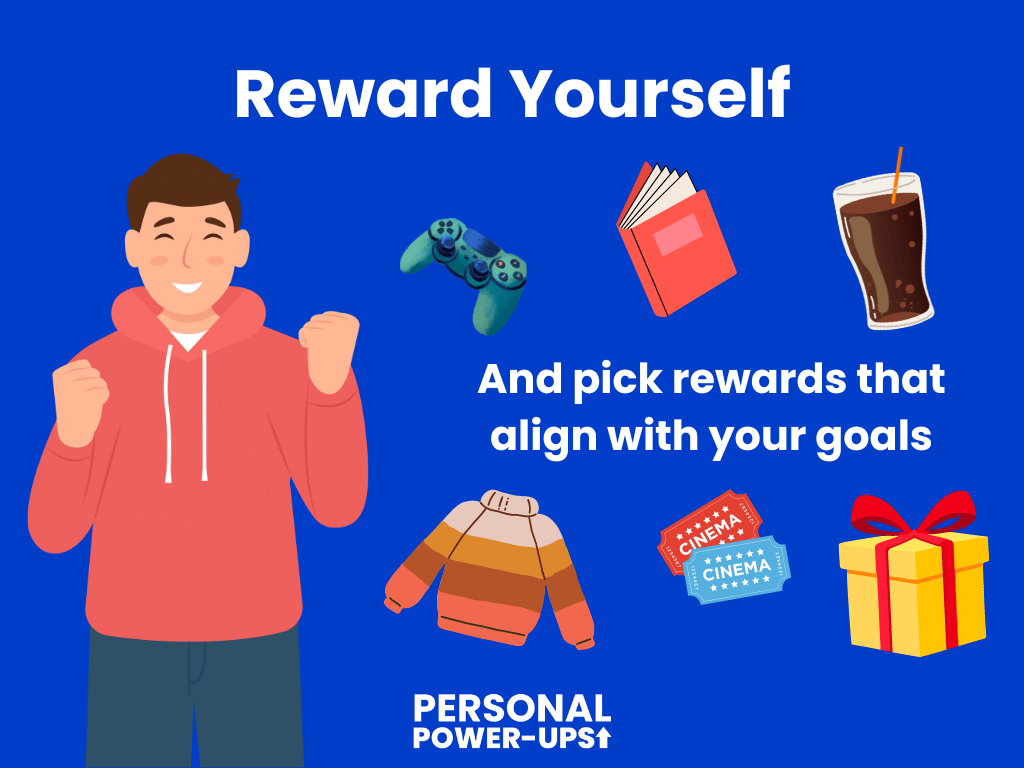Procrastination, the age-old enemy of productivity, affects almost everyone at some point. I know I’ve struggled countless times with it. Sometimes you’re putting important tasks off, or you succumb to distractions (like your phone). This way, procrastination hinders your productivity, personal growth and success.
However, with the right strategies, you can overcome this bad habit and actually achieve your goals. In this article, we explore seven effective methods to stop procrastinating and reclaim control over your time and tasks.
Contents
1. Create Clarity
One of the main reasons people procrastinate is a lack of clarity about what needs to be done. Even if you feel like you’re good at planning, be sure to check whether your plans are actually concrete and actionable.
To create more clarity, set clear, specific, and achievable goals for each day, week, or month. Additionally, break down large tasks into small, manageable steps and plan them in your calendar. Prioritize these tasks based on importance and urgency, focusing on high-priority items first.
An example of an action that lacks clarity: write a novel.
This is such a huge task that even writing it down makes me want to stop writing and get distracted with something else.
Let’s make this action much more clear: write 5 pages for my novel from 7 PM to 9 PM.
Now this seems manageable, right? It’s clear what needs to be done, how much needs to be done, and when it should be done. It’s especially helpful if you timeblock this action in your (digital) calendar, so you’re reminded of your task.
By having a clear roadmap for your days and weeks, you’ll know what needs to be done and you’re less likely to procrastinate. We have a more in-depth article about how to manage your time, so be sure to check that one out if you struggle with this step.

2. Create a Structured Schedule
This also brings me to my second point: a well-structured schedule is a powerful antidote to procrastination. So allocate specific time blocks for each task and commit to sticking to them.
You can use tools like (digital) calendars, to-do lists, or task management apps to organize your time and create a nice schedule. I personally use Google Calendar and can highly recommend it.
But, be realistic in your planning. Allow for breaks and flexibility, and ensure you hold yourself accountable to the schedule you create. A schedule is worth nothing if you don’t stick to it.
▼ Ad
3. Use the Two-Minute Rule & Five-Minute Rule
How do you stop procrastinating with small tasks? The two-minute rule, popularized by productivity expert David Allen in his book Getting Things Done, says that if a task takes less than two minutes to complete, do it immediately. The five-minute rule is similar, and is a helpful addition to the two-minute rule.
Why does this work? Because starting is often the hardest part. Once you get started, it’s much easier to keep going. By using both these rules, you lower the barrier to start, which makes you less likely to procrastinate.

4. Stop Perfectionism
Perfectionism leads to procrastination: the fear of not meeting impossibly high standards only causes avoidance and delay.
So if you want to stop procrastinating, accept that perfection is unattainable and focus on doing your best instead. Embrace the idea of “good enough” and recognize that taking action and making progress is more important than waiting for flawless outcomes.
Having a clear schedule (point #2) also helps against perfectionism, as you simply don’t give yourself the time or space to dilly-dally.
5. Reward Yourself
Discipline can only get you so far, as our brains are simply not made to endlessly use self-discipline to get things done. Instead, our monkey brain wants nice rewards. So why not give yourself a reward when you’re doing well?
Implement this tip by using rewards that make you motivated to get things done. Perhaps it’s a gaming session after finishing a paper, or a healthy snack after working out. After implementing, check whether it’s motivating enough to make you stop procrastinating. If it doesn’t, try finding another reward.
Please pick rewards that align with your goals. This might sound really obvious, but I’ve seen examples where people reward themselves with fast food after a workout.

6. Eliminate Distractions
In today’s digital age, distractions are everywhere and they can easily derail your productivity. To stop this, list your most common sources of distraction and take action to eliminate or minimize them.
If you’re like me, your greatest source of distraction is your phone. So put your phone on silent or in another room, block distracting websites, delete attention-seeking apps, and create a clutter-free workspace. Creating a work space without distractions helps you maintain focus and concentration on your tasks.
7. Use the Power of Accountability
Accountability can be a powerful way to combat procrastination. Find an accountability partner—a friend, colleague, family member—who shares similar goals or simply wants to help you.
Then, set regular check-ins or deadlines, where you can discuss your progress, challenges, and accomplishments. The support and accountability to the other person will increase your motivation and make procrastination less likely.
▼ Ad
Conclusion: How Do I Stop Procrastinating?
Overcoming procrastination takes effort and commitment, but with the strategies in this article, you will regain control over your time, attention and productivity. Check out a summary of the action points below. Implement these tips in your life today and stop procrastination!
If you’d like to learn more methods to stop procrastination, be sure to check out our other articles on this subject, like the Doom of Inaction method and small wins.
Action Points
- Set SMART Goals.
- Create a clear schedule with concrete tasks.
- Practice the 2-Minute Rule and 5-Minute Rule.
- Embrace the idea of "good enough".
- Reward yourself with goal-aligned rewards.
- Break tasks into small and concrete actions.
- Create a distraction-free environment.
- Find an accountability partner.




